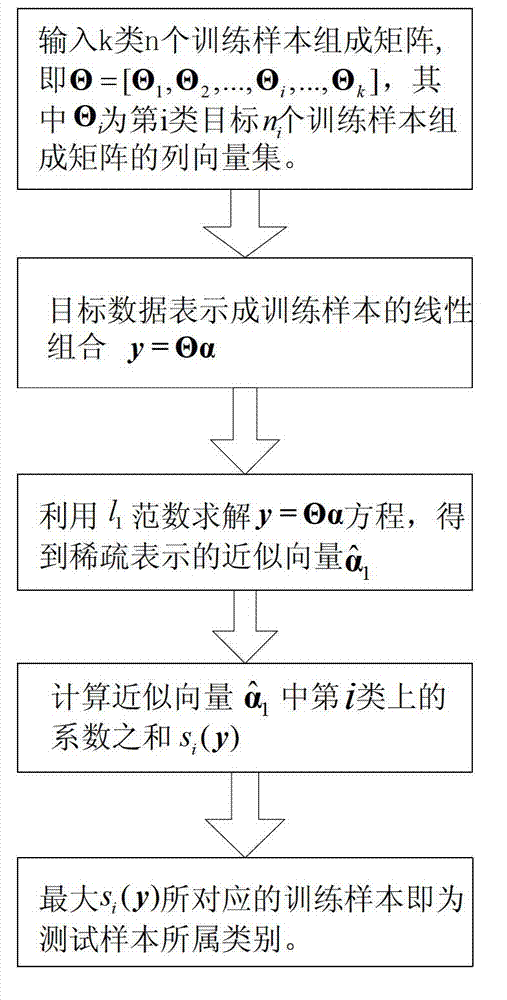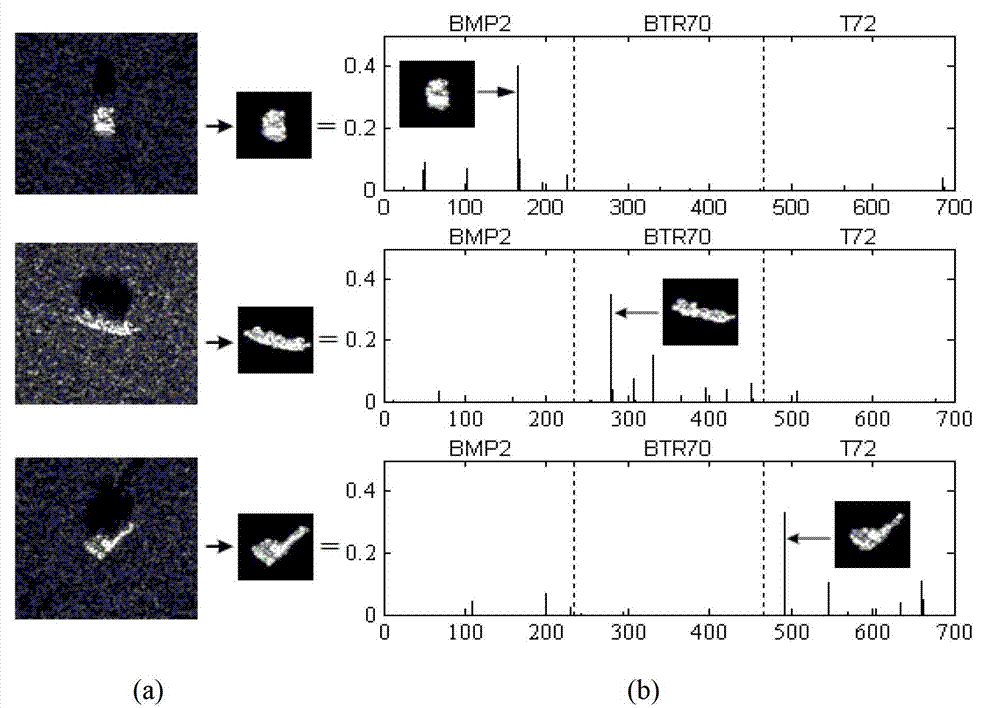SAR (Synthetic Aperture Radar) image target identification method
A target recognition, image technology, applied in character and pattern recognition, instruments, computer parts, etc.
- Summary
- Abstract
- Description
- Claims
- Application Information
AI Technical Summary
Problems solved by technology
Method used
Image
Examples
Embodiment Construction
[0044] The present invention will be further described below in conjunction with the accompanying drawings and specific embodiments.
[0045] The reconstruction algorithm using sparse representation can solve the coefficient vector α of sparse representation 0 , ideally, the coefficient vector α 0 In , only the coefficient of the i-th training sample of the same type as the target data may be non-zero, and the coefficients corresponding to other types of training samples are all 0, that is to say, the linear combination of the target data based on all training samples actually only depends on some of the same type Training samples.
[0046] However, due to the influence of imaging angle, noise interference, model error and other factors in practical applications, many relatively small non-zero coefficients are scattered to other classes. However, on the whole, there are still a large number of relatively large non-zero coefficients in the category to which the target data y ...
PUM
 Login to View More
Login to View More Abstract
Description
Claims
Application Information
 Login to View More
Login to View More - R&D
- Intellectual Property
- Life Sciences
- Materials
- Tech Scout
- Unparalleled Data Quality
- Higher Quality Content
- 60% Fewer Hallucinations
Browse by: Latest US Patents, China's latest patents, Technical Efficacy Thesaurus, Application Domain, Technology Topic, Popular Technical Reports.
© 2025 PatSnap. All rights reserved.Legal|Privacy policy|Modern Slavery Act Transparency Statement|Sitemap|About US| Contact US: help@patsnap.com



